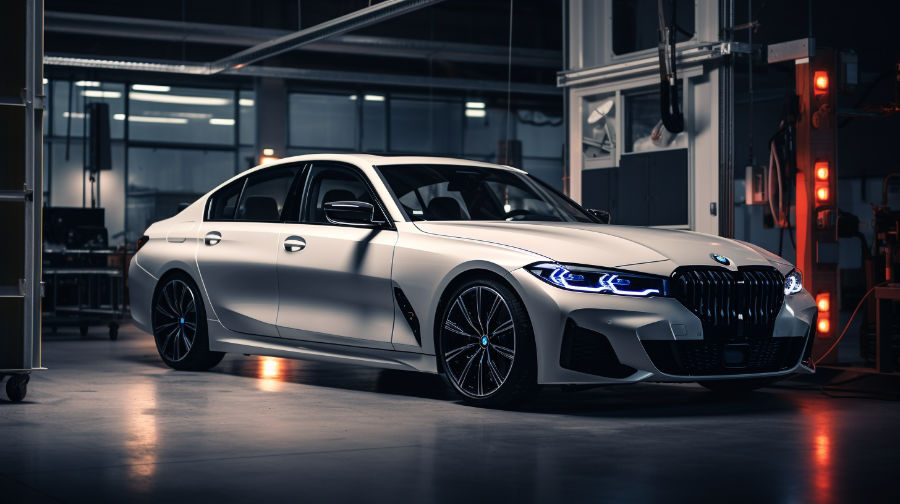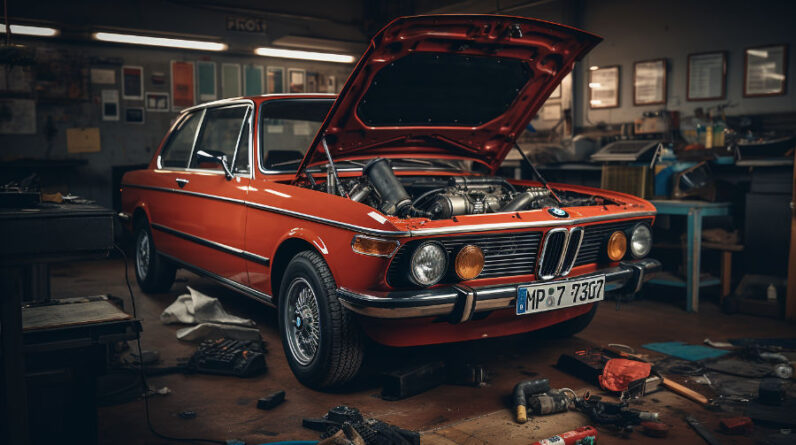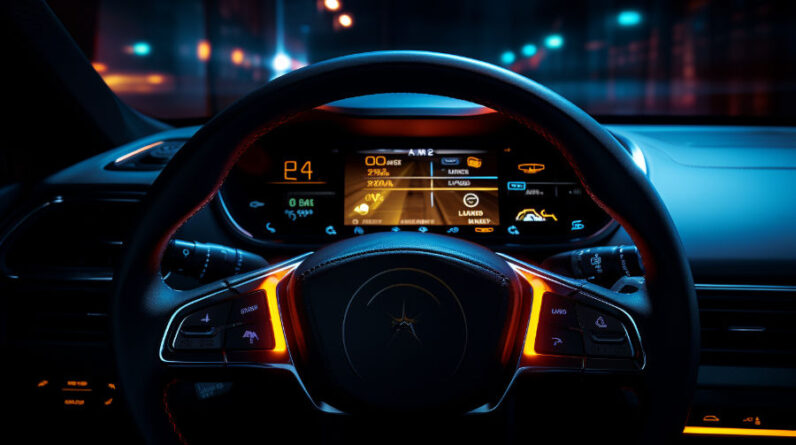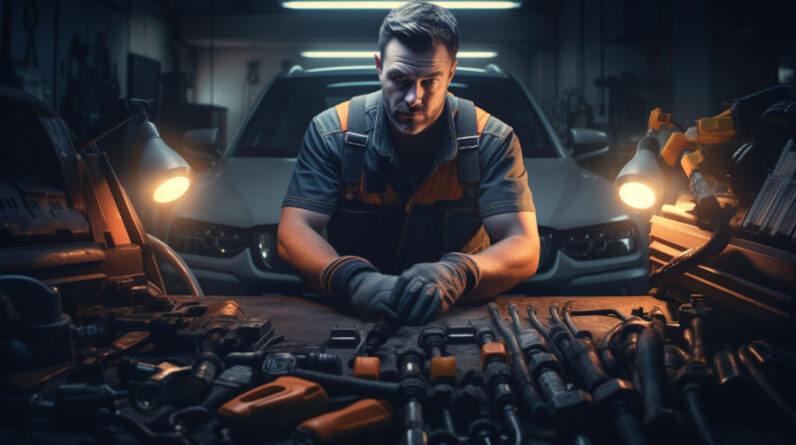Hello, fellow car enthusiasts and owners! Whether you’re a seasoned mechanic or a beginner trying to understand the intricacies of your beloved four-wheeled friend, one thing is clear: electrical issues can be a headache. So, buckle up as we delve into the world of common electrical problems in used vehicles. Trust me, this is one ride you don’t want to miss!
Seven Key Takeaways:
| No. | Key Takeaways |
|---|---|
| 1 | The fuse, alternator, spark plugs, and battery are key electrical components in a vehicle. |
| 2 | Frequent blown fuses could be a sign of a deeper electrical problem. |
| 3 | Symptoms of a bad alternator include dim headlights, strange noises, and a dying battery. |
| 4 | Faulty spark plugs can cause engine misfires and poor fuel economy. |
| 5 | Problems with headlights can indicate electrical issues. |
| 6 | A dead battery is one of the most common car issues. Regular inspections can prolong battery life. |
| 7 | Smelling burning plastic in your car is a serious issue and could indicate overheating or a short circuit. |
Understanding the Car Electrical System and Common Car Electrical Problems
The electrical system of your car is a complex network of circuits and components. They work together to keep your car running smoothly and safely. But like all systems, it can have its fair share of hiccups.
Electrical problems in cars can arise from various components, including the alternator, starter, spark plug, and even the car’s fuse box. Here are some common issues you might encounter:
- Failure to start
- Dim or flickering headlights
- Battery problems
- Malfunctioning accessories or controls
Don’t worry! We’ll go over these in detail soon.

The Fuse and Its Role in the Electrical System
The fuse is an often-overlooked but essential component of your car’s electrical system. Acting like a gatekeeper, fuses protect the electrical circuits in your car by breaking the circuit if an overload occurs, preventing potential damage.
Signs of a blown fuse can include malfunctioning interior lights or an unresponsive car stereo. If you suspect a blown fuse, locate the fuse box in your car (usually found under the dashboard or the hood), and look for a fuse that appears burnt or broken.
Remember, a blown fuse is often a symptom of a deeper electrical issue such as a short circuit or loose wires. So, it’s best to get your car checked by a professional mechanic if fuses frequently blow.
Common Alternator Problems and the Symptoms of a Bad Alternator
The alternator is your car’s electrical charger. It works hand-in-hand with the battery to supply power to the electrical components of your car when the engine is running.
Common signs of a bad alternator may include:
- Dim or overly bright headlights
- Weird noises or even a burning smell
- The ‘ALT’ or ‘GEN’ light on your dashboard
- A dying battery
If your car exhibits any of these symptoms, it’s time to take your car to a service centre for a professional diagnosis and potential alternator replacement.
Spark Plug Issues and their Impact on the Car Electrical System
Spark plugs might be small, but they play a vital role in your car’s ignition system. They generate a spark that ignites the fuel-air mixture in the engine’s cylinders, allowing your car to run.
A faulty spark plug can cause various problems like engine misfires, poor fuel economy, or difficulty starting your car. Regular maintenance and timely replacements can help avoid these issues.
The Importance of Headlights and Other Lights in a Vehicle
Headlights and other lights, like tail lights and signal lights, aren’t just there for decoration—they play a critical role in safety. Flickering lights, dim lights, or lights that don’t turn on at all could be a sign of an electrical fault in the lighting system. This issue can be due to a faulty switch, wiring issues, or a blown fuse.
Role of the Starter and Starter Motor in the Car Electrical System
The starter motor’s job is to get your engine going. It does so by using electrical power from the battery to start the engine’s crankshaft turning.
If your car won’t start or there’s a grinding noise when you try to start your car, you might be dealing with a faulty starter. It’s best to consult with a professional mechanic for diagnosis and repair.
Dead Car Battery: Signs and Solutions
A dead car battery is one of the most common issues car owners face. Signs include a sluggish start, dimmed lights, and electrical components not working. If you’re experiencing battery problems, it might be time for a battery replacement. Regular battery inspections and cleanings can also prolong the battery’s life.
Common Car Electrical Problems with Battery Cables
Battery cables connect your battery to the vehicle’s electrical system. Corroded or damaged cables can lead to starting issues or electrical problems. Regular inspections can help catch any problems before they cause significant issues.
Unusual Smells like Burning Plastic and Their Connection to Electrical Shorts
Smelling burning plastic when your car is running? That’s not something to ignore! It could be a sign of overheating components or an electrical short. When electrical wires are frayed or damaged, they can cause short circuits, leading to that unpleasant smell. It’s a serious issue that requires immediate attention from a professional.
Role of a Service Centre in Addressing Common Car Electrical Problems
If you suspect that your vehicle has an electrical problem, it’s often best to consult with a professional. A service centre can accurately diagnose and fix electrical problems in your car. Regular service and maintenance can prevent many common issues and extend the life of your vehicle.
Frequently Asked Questions
Q: What are some signs that your car may have an electrical issue?
A: Some signs that your car may have an electrical issue include difficulties starting the car, problems with the lights, unresponsive controls or accessories, and even unusual smells like burning plastic.
Q: Why doesn’t my car start even when the engine cranks?
A: This could be due to a malfunctioning alternator or a problem with the ignition switch. It could also be a common electrical problem in cars like a faulty spark plug, which is essential in igniting the fuel to run the engine.
Q: What are the most common electrical problems in modern cars?
A: Some of the most common electrical problems in modern cars include issues with the battery, alternator, starter motor, fuses, and wiring. Ignition switch failures and blown fuses are also common problems.
Q: When should I take my car for a car service?
A: You should take your car for a service if you notice any signs of electrical issues, such as dimming lights, difficulty starting the car, a dead battery, or if you’re experiencing decreased power and rapid loss of speed in the car. Regular preventive maintenance is also essential to keep your car in optimal condition.
Q: Why does my car need electrical repair even though the car still runs?
A: While your car may still run, electrical problems can gradually worsen over time, leading to more serious issues that can negatively impact your car’s performance. For example, a malfunctioning alternator might cause a drained battery, or faulty and loose wires could lead to a fire risk.
Q: What could be the reasons why my car’s speed decreases rapidly?
A: A rapid loss of speed in your car could be due to several reasons, including problems with the engine, a malfunctioning alternator, or issues with your battery. It could also be due to other non-electrical issues like a coolant leaking problem.
Q: What could cause a fuse in my car to blow repeatedly?
A: If a fuse in your car keeps blowing, it could indicate a problem with the electrical system of your car. This is often due to a short circuit caused by damaged or loose wires.
Q: What does my car rely on to create the spark that ignites the fuel?
A: Your car relies on the spark plug to create the spark that ignites the fuel-air mixture in the engine’s cylinders. A fault with the spark plug can cause starting issues or a decrease in your car’s performance.
Q: How can I improve the performance of my car’s electrical system?
A: Regular maintenance is key to improving the performance of your car’s electrical system. This includes checking the battery, alternator, starter, and fuses, and ensuring all electrical parts are in good working condition.
Q: Why do I smell burning plastic in my car?
A: The smell of burning plastic in your car can be a sign of overheating electrical parts or a short circuit. It’s crucial to get this checked immediately to prevent any potential risks.
Conclusion: Staying Ahead of Common Electrical Issues in Used Vehicles
Remember, the key to keeping your car running smoothly is regular maintenance and vigilance. Many common electrical issues can be detected and fixed early if you’re proactive. Don’t ignore the warning signs! It’s better to address a small problem today than face a significant issue down the road.
Knowledge is power! Now, you’re equipped with the basics of diagnosing common car electrical problems. Safe driving and happy maintenance!





